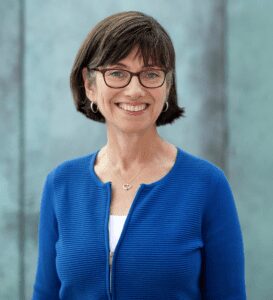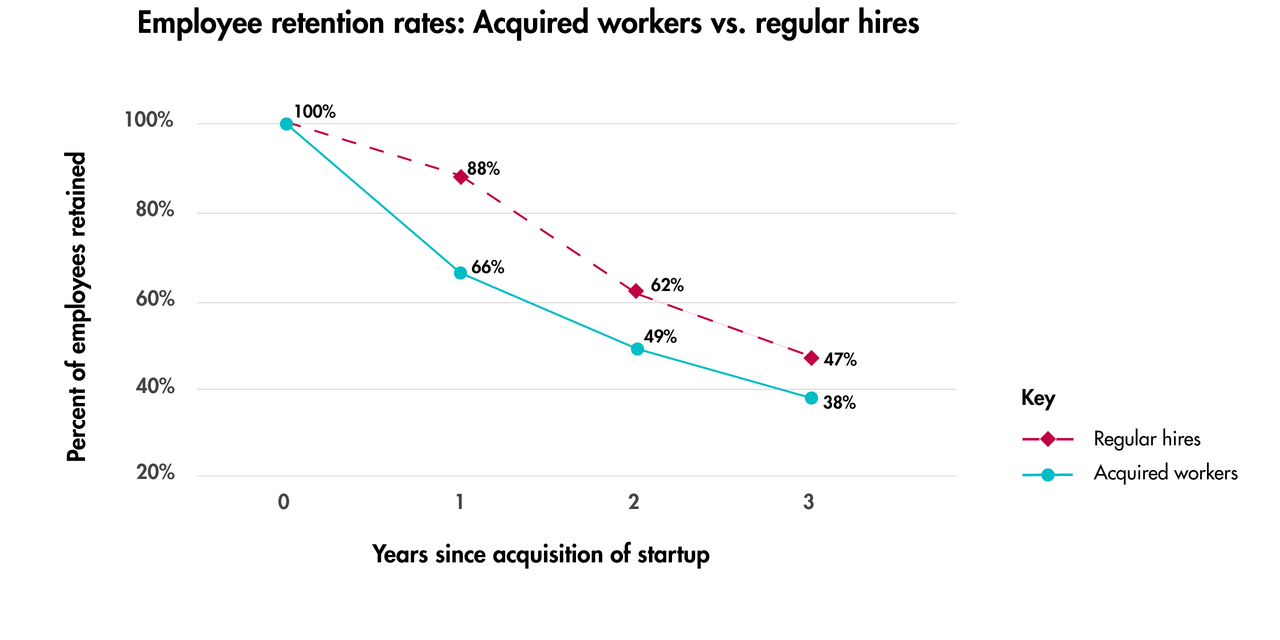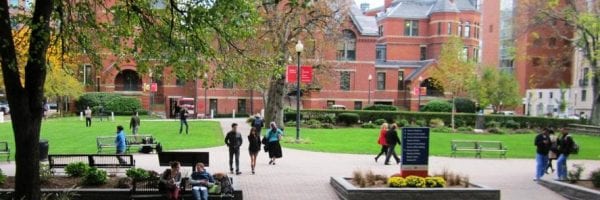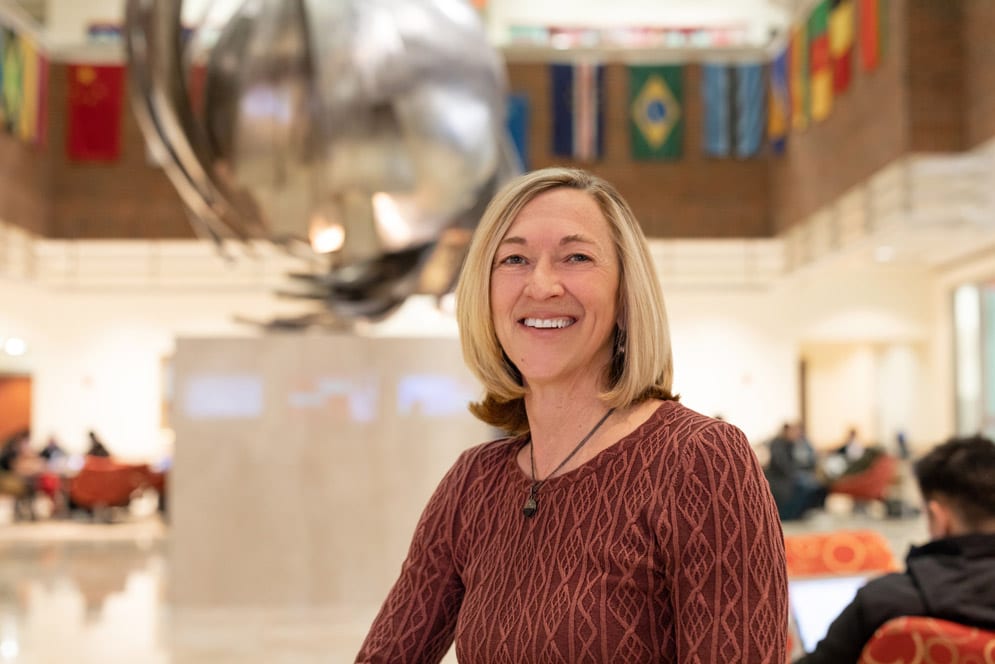5 Questions with the Senior Associate Dean of MBA Programs at BU Questrom

In our latest installment of the MetroMBA “5 Questions” series, we speak with Barbara Bickart, the Senior Associate Dean of MBA Programs at Boston University’s Questrom School of Business. Bickart talks about the qualities MBA candidates possess, unique opportunities for MBA students, and things to do in Boston.
1. Why should an MBA candidate be excited to apply to Questrom?
“I believe three main factors make our program unique.
First, Questrom has a strategic focus on three sectors that we have identified as drivers of growth in our economy—digital technology, health, and social impact. We have developed unique program offerings as well as vibrant communities around these three sectors, and many of our students participate in one of these programs.
Second, our program is designed so that students can obtain a deep base of functional knowledge and key skills, and start their elective courses in the first year. Our first year is divided into four, seven-week modules. In the first three modules, students take three classes and complete an integrated experiential project. For example, in Mod 3, students take Strategy, Information Systems, and Organizational Behavior while working on a client-based project that addresses strategic issues in one of our three sectors. Through this process, students learn to view and solve problems from a multi-disciplinary perspective. Students can start taking elective courses during Mod 4.

Barbara Bickart is an Associate Professor of Marketing and Senior Associate Dean for MBA Programs.
Finally, Boston is a great place for students studying business, with a vibrant culture around innovation and technology. Our project-based learning draws on the Boston eco-system, and many of our students end up working in Boston or the immediate area.”
2. What type of MBA candidate is the best fit for Questrom?
“Our students come from a variety of backgrounds and experiences. In addition to being smart, intellectually curious, and engaged, the two traits that I would say best characterize our students are that (a) they care about community and the impact of their work on society and (b) they are agile and creative—they are flexible in how they think about and solve problems and look outside the box for solutions.”
3. How does Questrom stay on the cutting edge of MBA education? Is there a unique feature you can highlight?
“We are constantly evaluating and updating our curriculum, with a particular focus on adding more experiential learning opportunities in our courses and co-curricular experiences. Our faculty’s research often drives our elective courses. For example, one of our most popular elective courses is Platform Strategy. This course was developed by Professor Marshall Van Alstyne and is based on his book Platform Revolution: How Networked Markets are Transforming the Economy and How to Make the Work for You (2016, W.W. Norton and Co). In this course, student teams work on consulting projects for major platform-based companies. Past projects have been sponsored by Airbnb, Allstate, Capgemini, eBay, edX, Jawbone, Haier, Huawei, Mahindra, Pearson, PGA, PTC, Siemens, SAP, startups, and many others.”
4. What unique opportunities outside of the MBA curriculum make Questrom stand out?
“Our student community is active and engaged—there is always something going on here at Questrom. Students take advantage of the Boston ecosystem—attending networking events and conferences, for example, in health and life sciences. Questrom students are also involved Innovate@BU, which is a BU-wide initiative supporting student-led innovation and entrepreneurial activities. Students take advantage of the Build Lab IDG Capital Student Innovation Center, which is an on-campus co-working space for collaboration and new ventures. The Questrom School of Business Internship Fund provides financial support our students interested in exploring internships at not-for-profits. Finally, we offer a number to global learning opportunities, both in our curriculum and via student-run trips. Groups travel to Paris to study luxury marketing, South Africa to study social impact, Israel to study entrepreneurship, Vietnam to study manufacturing, and Silicon Valley to learn more about digital technology.”

“The views of Cambridge and Boston are amazing. I particularly love walking along the Charles during the Head of the Charles rowing races in October,” Bickart says.
5. What’s your favorite activity in Boston? Why?
“My favorite activity in Boston is to walk along paths on the Charles River. From my office, it takes just a few minutes to get to this path. The views of Cambridge and Boston are amazing. I particularly love walking along the Charles during the Head of the Charles rowing races in October. The races are exciting and fun to watch, and there is a lot of energy in the crowd.”
Gig Jobs vs. Full-Time and Revenue Sharing – Boston News

Let’s explore some of the most interesting stories that have emerged from Boston business schools this week.
Should It Be a Gig or a Job? – Questrom School of Business News
New research from Boston University Questrom School of Business‘ Associate Professor Andrei Hagiu and National University of Singapore’s Julian Wright examines how firms classify an employee versus an independent contractor, and how this relates to revenue sharing.
Hagiu notes that this classification greatly depends on the amount of decision-making power that firms cede to workers—and that appropriate revenue sharing should follow suit.
“In many cases, the share of variable revenue that is retained by workers is a good proxy for whether they can be considered independent contractors or regular employees,” says Hagiu.
The research notes:
“Firms that wish to classify their workers as independent contractors and provide a higher share of transferable decisions to workers should be paying them at least half of variable revenues. Firms that pay less than half of variable revenues to a worker should likely employ the worker, but provide a lower share of transferable decisions to workers.”
You can find out more from the research here.
Your Acquired Hires are Leaving and Here’s Why – MIT Sloan Ideas That Matter
Large companies often acquire startups in order to eliminate competition, with the added benefit of gaining skilled and innovative workers. Unfortunately, new research from MIT Sloan doctoral candidate Daniel Kim shows that this “acqui-hiring” strategy is not as effective as some think.
According to Kim’s paper, “Predictable Exodus: Startup Acquisitions and Employee Departures,” within the first year of a company’s acquisition, 33 percent of acquired workers left, compared to 12 percent of regular hires.
While those percentages tend to level off over time, in the three-year window Kim studied, acquired workers were 15 percent more likely to leave than new hires. This exodus is largely due to an organizational mismatch and new hires’ lack of agency.

Employment retention data, courtesy of Meredith Somers at MIT Sloan.
“People who work at startups join a startup for a reason,” Kim says. “Primarily they want to be in a very entrepreneurial, scrappy organization. But once they get acquired by a big firm, that is in direct opposition with the preferences that they have.”
You can read more about Kim’s research here.
The Accidental Restaurateur – Carroll School of News
Joe Essa, BC Carroll Alum ‘79, told the Carroll School of Business Blog that it was “a bit of a fluke” that he ended up becoming a successful restaurateur and ultimately the President and CEO of Wolfgang Puck Worldwide, overseeing more than 50 eateries across the nation along with licensing Puck’s cookbooks, canned soup, and other consumer products.
In 1983, when tending to his ill father in Greensboro, Essa was approached by a real estate developer friend, who needed a restaurant to complete a shopping center project. Café Pasta, Greensboro’s first casual Italian restaurant, was born.
Essa refers to the curriculum he learned at Carroll to keep him on track: “I always drew upon my accounting training … I knew you had to end up with some money in the bank! So I was very disciplined in that regard from day one.”
Eventually Essa sold his share of Café Pasta and came to work with Wolfgang Puck in 1999. He spoke passionately about his eclectic role within the organization.
“It’s not just one kind of dining, it’s many different kinds of restaurants, different cuisine. And then looking into the leases, license agreements, and marketing and promotion for all those businesses. And the people you get to meet along the way are fascinating. You get up every day and it’s different, it’s exciting, and it’s humbling. I just count my blessings.”
Click here to find out more about Essa’s life and career.
Business and Climate Change, and More – Boston News

Let’s explore some of the most interesting stories that have emerged from Boston business schools this week.
Is It Up To Business To Save the Planet? – MIT Sloan Ideas Made to Matter
The MIT Sloan Management Review recently hosted a debate between engineering professor and Center for Transportation and Logistics director Yossi Sheffi and Winston Eco-Strategies founder Andrew Winston. In which, the two discussed whether for-profit companies should have any obligations to reverse climate change.
Winston says, “There’s always been the easy wins: cutting energy, lighting, retrofits, manufacturing efficiencies, everything under ‘lean is green.’ But now you’ve got the entire clean economy, renewable energy area where it is now cheaper fundamentally to buy renewable energy than fossil fuels pretty much everywhere in the world.”
Sheffi counters that many businesses are doing the bare minimum because the cost in jobs, standard of living, and dislocation don’t “justify the means.” He argued that fast food chains, for instance, need to adopt firmer moral stances like banning burgers, but for major company’s like McDonald’s, it would be economic suicide.
You can read more from the interview here and check out the full video below.
Pushing Back on Hacks – Sawyer Business School Blog
Data breaches among American corporations (see: Equifax) have become so ubiquitous that they hardly make compelling news anymore. According to Sawyer Business School, “inadequate in-house expertise is the top reason [companies] are likely to have a data breach.”
Sawyer’s Information Systems and Operations Management (ISOM) department was developed in response to the emerging opportunities for cybersecurity professionals. ISOM Professor Benjamin Ngugi helped assemble a Cybersecurity Beanpot hackathon this past October to give students a chance to experience the challenges for themselves firsthand by earning $10,000 in scholarship money to hack a website called ShadowBank.
Ngugi says, “For students to be good, they need to really think like hackers. They need to understand some of the tools and techniques that cybercriminals use to really be good in protection. The piece that is missing is a real website that they can go and hack.”
Security Innovation CEO and President Ed Adams, whose software security company sponsored the hackathon, writes, “ShadowBank is a safe playground where people can come and practice offensive and defensive cybersecurity skills. The point is to make the site as real as possible so that people can become familiar with how to protect a site in the real world.”
With the career opportunities in cybersecurity projected to explode in the coming years, Ngugi wants every Sawyer student to have a foundation in the subject.
“Whether you’re in marketing, accounting, taxation, finance, or healthcare, you need to understand cybersecurity fundamentals, data privacy, and required compliance laws and regulations.”
You can read the full article here.
Insurers’ Nearly Invisible Negotiated Rates Can Dramatically Affect Health Care Prices – Questrom School of Business News
Questrom School of Business Professor Keith Ericson co-authored a new working paper that finds that the “rates that insurers negotiate with hospitals for specific procedures” has led to “significant variation in prices at different health care providers” for procedures like MRIs and hip replacements.
Ericson says, “[Until now] we didn’t know that there was a lot of variation between insurers’ [negotiated prices] at the same hospital. Many are concerned about hospitals being high priced versus low priced. But people should also be concerned about insurers being high-priced versus low-priced. We should think about price transparency options.”
Read the complete working paper “How Important is Price Variation Between Health Insurers?“ co-authored with Penn’s Stuart V. Craig and Northwestern’s Amanda Starc.
You can read more from the Questrom article here.
Meet Boston Questrom’s First Female Dean, Susan Fournier

What does it take to be the first female dean at your business school? It takes a lot of experience, know-how, and pioneering research. That’s precisely why Boston University’s Questrom School of Business choose Susan Fournier to be the first female to lead the school. After 13 years as a marketing and management professor at BU and as a leading international expert on brand marketing, she was an obvious choice.
“She brings a remarkable tool kit of experience and knowledge to this role—and a genuine connection to the students, faculty, and staff, who are the heart of Questrom,” Jean Morrison, BU Provost and Chief Academic Officer, told BU Today. “I am excited to welcome her to this role and to follow her success as she guides Questrom to continued excellence as a leading global business school.”
Meet Susan Fournier

Susan Fournier, Questrom Professor in Management, will become the new dean of the Questrom School of Business, effective August 27. Fournier is an international expert in brand marketing / Photo by Dan Watkins
Dean Fournier is well known at Boston University and in the field of marketing. She’s credited with pioneering brand relationships; a marketing field that explores the emotional relationships between consumers and brands. Fournier has written two acclaimed books on branding as well as participating in numerous best-selling Harvard case studies. Most recently, Fournier’s soon-to-be-published paper examines the pitfalls of celebrity-based branding, focusing on Martha Stewart’s 14-year career.
Fournier’s research has received several awards including the JRC Long-Term Contribution Award from the Association for Consumer Research as well as Emerald Publishing’s Citation of Excellence Award for the top 50 articles in management. Other awards include being ranked among the Top 10 percent of authors on SSRN regarding all-time downloads. She also claims over 20,000 Google Scholar citations with five works garnering over 1,000 citations each.
On her new role, Fournier sees a strong correlation between research specialties and her position as dean. They’re both about relationships.
“I have deep knowledge in the psychology and sociology of relationships, how they develop, how they fall apart, what kind of flavors they come in,” she says. “The whole point of what I do is looking at why people connect with things, what role brands, products, organizations have for people in their lives. It’s not about selling a product, it’s about understanding people’s lives … and trying to help them.”
Beyond her research, Fournier is a celebrated professor with over 24 years of experience in academia covering the gambit from teaching undergraduate courses to teaching in MBA and Executive classrooms at such prestigious schools as Harvard Business School, Dartmouth College’s Tuck School of Business, and Questrom.
Before her new role as Dean, Fournier served as the Senior Associate Dean of Faculty & Research and Faculty Director of the Questrom MBA and Doctoral programs. During that time, she hired 22 tenure-track research faculty and 18 non-tenure track faculty across disciplines and departments.
Outside of academia, Fournier worked as a market research consultant for companies such as Polaroid Corp., Altria, IBM, Coca-Cola, and Chick-fil-A, according to the Boston Globe.
What To Expect
“I will be the champion of the Questrom School of Business brand,” Fournier tells BU Today. “I will be looking out to make sure all the decisions we make are on brand and are going to build our equity as a preeminent academic institution, from every person we hire to every course we develop to every institute we endow.”
Fournier has many exciting plans for Questrom. Not only will she work to increase interdisciplinary programming, but she’ll also ensure Questrom’s financial security and aligning coursework with student and employer needs. And her work has already begun breaking down outmoded silos in favor of interdisciplinary programming. She has helped eliminate boundaries in hiring, interfaces, and education in general.
“I’m trying to further establish our reputation as a preeminent research and teaching institution and develop our reputation for research that matters and faculty who care,” Fournier says. “We need strong partnerships with industry and organizations both to provide data for research that matters but also to be in partnership with us in the development of courses and projects that students would work on for hands-on learning. I have a stakeholder perspective from having worked and lived on the other side.”
Also, Fournier plans to focus on online and experiential learning, global partnerships, and practical and pragmatic research particularly in focus areas such as health, social impact, and digital technology. She sees these areas of the economy as important spaces to “double down” by hiring more faculty, building research institutes, and implementing new programs and concentrations.
Fournier told The Daily Free Press that she also plans to build more partnerships between faculty and research tracks in those areas. “We already have what I would consider to be a fantastic culture, but let’s further enable the collaborative culture, and in particular … interdisciplinary work and ideas and projects and partnerships,” she says.
High Expectations
As for what the Questrom School can expect its new dean? It’s an exciting time for the school, and University President Robert A. Brown gives her his enthusiastic support.
“Susan assumes the role of the dean of the Questrom School of Business during an exciting time for the school, for business education, and the University,” Brown told BU Today. “I look forward to working with her to continue the journey of increasing the quality and impact of the school’s education and research programs.”
And Fournier is excited as well, not just about being the first female dean at Questrom, but about being a great dean in general.
“We’ve never had a woman dean, and it’s definitely notable and wonderful,” Fournier told The Daily Free Press. “But I also would say that at the same time, I want to be known as a great dean, not first and foremost as a woman who happened to get a dean role. I’m really looking forward to the day when that doesn’t even have to be a question anymore.”
Find the original school press release about the Susan Fournier appointment here.
MIT on the Problems with Twitter, and More – Boston News

Let’s explore some of the most interesting stories that have emerged from Boston business schools this week.
Marketers Take Note: When Too Many Choices are a Burden, Not a Benefit – Questrom School of Business News
BU Questrom School of Business Ph.D. alum Sarah Whitley recently co-authored a new Journal of Consumer Research paper with Associate Professor Remi Turdel and fellow Assistant Professor Didem Kurt, in which they discovered “that people typically want more choices when they’re buying for pleasure [and they want] fewer choices when they make a purchase for strictly utilitarian or functional reasons.”
The research dives into what is more commonly known as the Paradox of Choice. The idea crept into the market lexicon shortly after the release of the 2004 book The Paradox of Choice – Why More Is Less from psychologist Barry Schwartz, NYU alum and U. Penn Ph.D. The general idea Schwartz derived was that consumer anxiety could be caused by too many options. However, research from Whitley, Turdel, and Kurt reveal that it may only pertain to specific kinds of purchases, not simply overall.
Whitley says the major takeaway is that businesses can be more strategic if they know “what motivates the buying decisions of their customers.”
“For product categories where people feel that they have unique preferences, it may be worth it to have more variety. It may be fine to reduce the number of offered products where this is not the case.”
You can read the full article here.
Solving Twitter’s ‘Follow-Back’ Problem – MIT Sloan Newsroom
About four years ago, MIT Sloan Associate Professor of Operations Tauhid Zaman put together a social media experiment in which he used Taylor Swift’s friends on Twitter to “open the gates to her inner circle.”

Dubbed the “follow-back problem,” Zaman sought to understand “the underlying dynamics of follows on Twitter, [such as] what kinds of Twitter interactions matter the most when trying to get followers? And do overlapping social networks actually help build connections? If they do, then to what degree do they help?”
Zaman found that Twitters “who don’t follow many other people are unlikely to follow you back, while those who follow a lot of people are likely to follow you if you follow and retweet them.” He also found that if, for instance, “Swift follows somebody who, in turn, follows Zaman, then Zaman has a greater chance that Swift will follow him.”
The article notes that social media tools can “have a tremendous blast radius” in terms of their ability to powerfully influence the opinions of a whole country.
“In my opinion, this can be far more dangerous than conventional weapons which have a fixed blast radius. These are weapons, and I’m building efficient ways to use the weapons, so this has to be handled with care,” Zaman said.
Read the full article, the first in a three-part series examining new work about Twitter, influence, and bots, here.
How CEOs Manage Time – Harvard Business Review
Harvard Business School Professors Michael E. Porter and Nitin Nohria recently published a piece in the Harvard Business Review that examines how CEOs allocate their time.
According to the article, face-to-face interactions take up “61 percent of the work time of the CEOs we studied. Another 15 percent was spent on the phone or reading and replying to written correspondence. The final 24 percent was spent on electronic communications.”
The authors describe the CEO’s job as “relentless.” They write, “Given that work could consume every hour of their lives, CEOs have to set limits so that they can preserve their health and their relationships with family and friends. To sustain the intensity of the job, CEOs need to train—just as elite athletes do. That means allocating time for health, fitness, and rest.”
You can read the full article here.
MBA Battle: BU Questrom v. BC Carroll

Boston College and Boston University are two of the metro’s most popular and recognizable schools. But for two schools with a lot in common, BU and BC don’t seem to like each other much. Continue reading…
